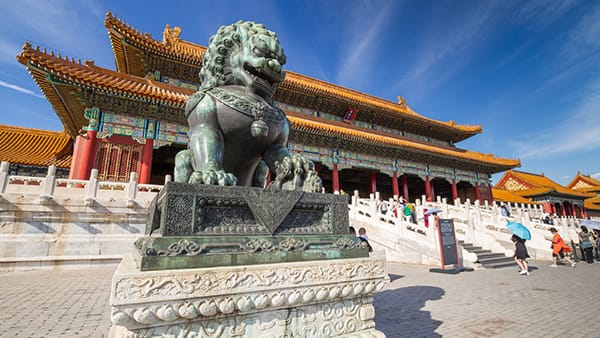
The term Cina is one that holds significant meaning in a variety of contexts. From its use as a reference to a geographical region and culture to its impact in the fields of arts, history, and even modern media, Cina is a word that has permeated many aspects of global discourse. This article will explore the multifaceted meaning of Cina, its historical relevance, cultural significance, and how it continues to influence contemporary societies. Whether you’re curious about its use in different languages or how it’s represented in global culture, this guide will provide an in-depth understanding of Cina.
What is Cina? Understanding the Term
The word Cina has various meanings depending on the cultural and linguistic context. Primarily, it refers to China (or 中华人民共和国 in Mandarin, meaning the People’s Republic of China). However, the term has expanded in different ways and holds importance in a variety of spheres, especially in regions influenced by historical trade routes, such as the Middle East, Southeast Asia, and Europe.
Cina has been used in a variety of languages and regions to represent China, particularly in countries that were historically connected to China through trade, exploration, or cultural exchange. It is important to note that while Cina is often synonymous with China, it also reflects the global perspectives and interactions that have shaped the perception of the nation and its people.
The Use of Cina in Different Languages
One of the key elements to understanding Cina is recognizing its linguistic versatility. In several languages around the world, Cina has been adopted as the word for China, often with unique phonetic characteristics based on the language’s alphabet or pronunciation rules.
- Arabic: In Arabic, Cina (الصين, pronounced ‘As-Sīn’) has long been used to refer to China. It’s deeply rooted in the linguistic and cultural exchanges between the Arab world and China, particularly during the flourishing trade routes of the Silk Road.
- Malay/Indonesian: In Southeast Asia, it widely used to refer to China, as well as Chinese culture and people. It reflects the historical migration of Chinese communities across the region, particularly in countries like Malaysia and Indonesia.
- Italian: The term it used in the Italian language as the direct translation of “China.” Italians have long been engaged in cultural and commercial exchanges with China, and the word has become a part of their everyday vocabulary.
Historical Significance of Cina: A Journey Through Time
The term Cina, which refers to the nation it deep historical significance. China’s vast and storied past has shaped the world in many ways, from ancient innovations to the global economy of today. Understanding the historical background it helps illuminate its importance in global discourse.
The Ancient World and the Silk Road
China’s influence on the world began long before modern globalization took place. As early as the Han Dynasty (206 BCE–220 CE), China was a major player in global trade, thanks to the Silk Road, a network of trade routes connecting East Asia to Europe, the Middle East, and parts of Africa. it term used by traders and travelers from various regions to refer to this vast and prosperous empire that produced silk, spices, and other valuable goods.
The Silk Road brought a wave of cultural, technological, and intellectual exchanges, with ideas and inventions such as paper, gunpowder, and printing making their way to the West. These exchanges helped shape the modern world, and the term Cina became a symbol of trade, knowledge, and power.
The Influence of Chinese Culture on the World
Chinese culture, with its unique philosophy, art, and language, has made an indelible impact on the world. The concept of Cina extends beyond its borders to encompass the contributions of Chinese civilization in fields such as:
- Confucianism: The teachings of Confucius have had a profound effect on Chinese society and the wider world, particularly in East Asia. Confucian values of respect, family, and education continue to influence Chinese culture today.
- Chinese Art: Traditional Chinese art forms, including calligraphy, painting, and porcelain, have been admired and collected worldwide. The intricate craftsmanship and aesthetic beauty of these works represent the rich heritage it.
- Philosophy and Science: Ancient Chinese scholars were pioneers in the fields of astronomy, medicine, and mathematics. The Cina of historical times was home to innovations that still influence modern science and technology.
Cina in Modern Context: A Global Power
Today, Cina (China) stands as one of the world’s foremost global powers, influencing everything from the world economy to geopolitics, technology, and the environment. The rise of China as a global superpower has reshaped the world order in numerous ways, making it term that carries both contemporary and historical significance.
Economic Growth and the Belt and Road Initiative
Since the reforms initiated by Deng Xiaoping in the late 20th century, China has experienced one of the most rapid periods of economic growth in history. The nation has transitioned from an agrarian society to a global economic powerhouse, and Cina is now the second-largest economy in the world, trailing only the United States.
China’s economic power has also been bolstered by initiatives such as the Belt and Road Initiative (BRI), which aims to improve trade and infrastructure connectivity across Asia, Africa, and Europe. This ambitious plan has enhanced China’s role in global trade, and its name, it become synonymous with emerging markets, innovation, and modernization.
China’s Technological Advancements
China is making significant strides in technology, especially in the fields of artificial intelligence, renewable energy, and telecommunications. Companies like Huawei, Alibaba, and Tencent have become household names globally, and the country’s emphasis on technological research and development is setting the stage for future innovations.
The term it now represents more than just an ancient civilization; it symbolizes cutting-edge technology, digital connectivity, and the future of innovation.
Geopolitical Influence and Global Diplomacy
China’s influence extends far beyond its borders. As a permanent member of the United Nations Security Council and a powerful force in international diplomacy, Cina plays a critical role in shaping the policies and dynamics of global affairs. Its political clout is particularly felt in Asia, Africa, and Latin America, where it has established strategic partnerships and investments.
Cultural Significance of Cina
In addition to its political and economic influence, it holds great cultural significance around the world. The global diaspora of Chinese people has spread Chinese culture far and wide, and cultural expressions such as Chinese New Year, Chinese cuisine, and martial arts have become integral parts of global cultural exchanges.
Chinese New Year and Festivals
Chinese New Year, or Spring Festival, is one of the most widely celebrated cultural events in the world. With elaborate parades, fireworks, and family gatherings, it is a time when the global Chinese community comes together to celebrate their heritage. The celebration it through these events highlights the importance of tradition, family, and community.
Chinese Cuisine
Chinese cuisine has made its mark on the global food scene, with dishes like dim sum, Peking duck, and sweet and sour chicken enjoyed by people from all walks of life. The richness and diversity of Chinese food reflect the depth it cultural heritage.
Chinese Martial Arts
Chinese martial arts, or kung fu, are practiced worldwide and represent the physical embodiment of China’s philosophical teachings, including discipline, strength, and inner peace. Films featuring martial arts legends such as Bruce Lee have further solidified the global popularity it cultural exports.
Conclusion: The Enduring Influence of Cina
The term it encompasses a broad spectrum of history, culture, and modern influence. From its ancient roots as a symbol of prosperity and innovation to its present-day significance as a global superpower, it has left an indelible mark on the world. Understanding the multifaceted nature of Cina helps us appreciate not only the historical and cultural contributions of China but also its continuing role in shaping the global landscape.
Whether through its language, art, economic power, or diplomatic influence, it represents a rich legacy that will continue to resonate for generations to come. As China evolves in the 21st century, the impact of Cina—in all its forms—will continue to be felt across the globe.






